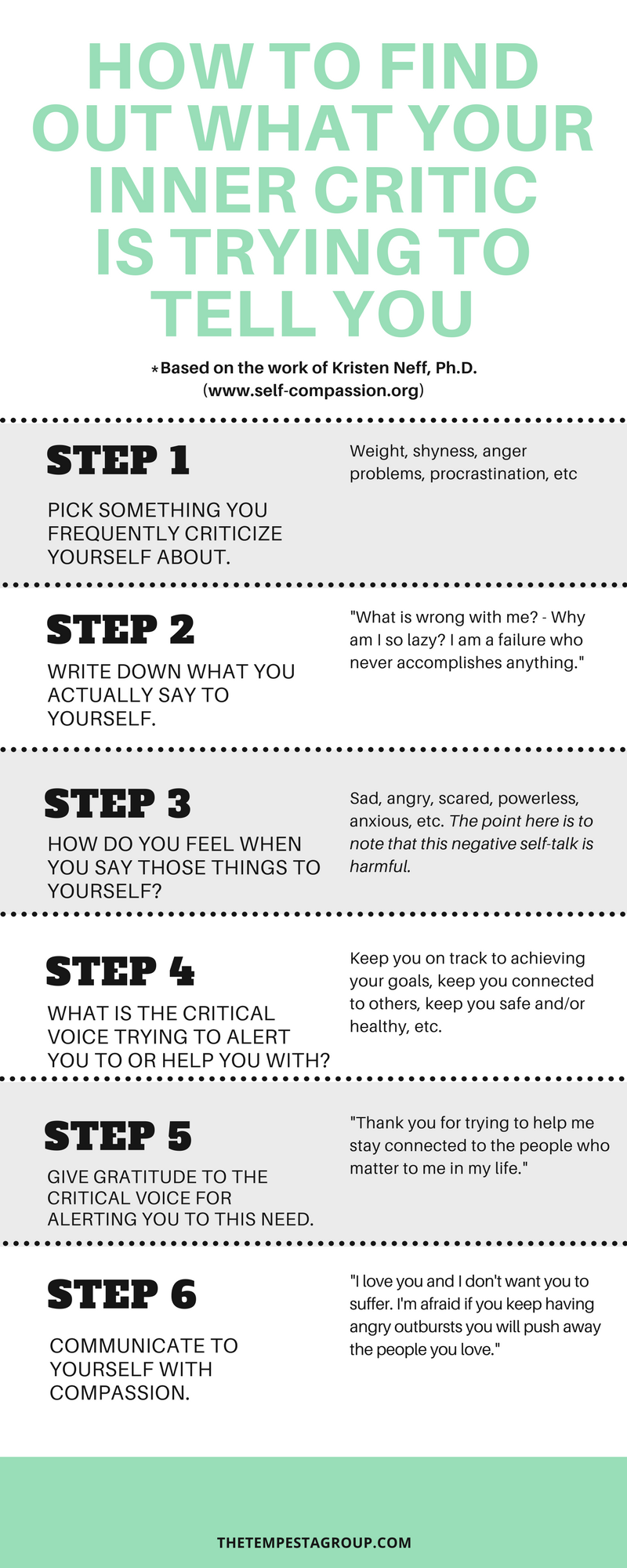“Self-judgments, like all judgments, are tragic expressions of unmet needs.” – Marshall Rosenberg
Let’s face it, we are only human.
It would be fantastic if we could permanently ditch that pesky voice that tells us we aren’t good enough, but we may not be able to completely override our brain’s hard-wired negativity bias.
So what if, instead, we chose to engage with the critical voice in a different kind of way?
Kristen Neff, Ph.D. has done groundbreaking research that shows what we need, far more than self-esteem, is self-compassion. Neff found that treating ourselves with compassion increases our motivation and well-being. On the other hand, when we criticize ourselves, our self-worth takes a hit and we are more likely to engage in the exact behavior that we are trying to avoid.
Take this example: You are trying to lose weight but you slip up and eat a piece of cake. You berate yourself for this slip-up, calling yourself names. You now feel so worthless that you need something to soothe your painful feelings. Enter the second piece of cake.
Neff encourages us to try to find out what is really at the core of our critical voice. Using the steps below, you can practice transforming your critical voice into a self-compassionate one, and discover how to use the unmet need to motivate you to meet your goals.
Give it a shot.

A final note — Treating yourself with compassion is not about being self-indulgent, making excuses, or giving up on what matters to you. It’s about relating to yourself in a way that will actually give you the resiliency and motivation necessary to achieve your goals and be your best self.
Being hard on yourself doesn’t work.
It pulls you in the opposite direction of your ideal self.
Practice kindness towards yourself and notice how things start to shift.
SaveSave
SaveSave




